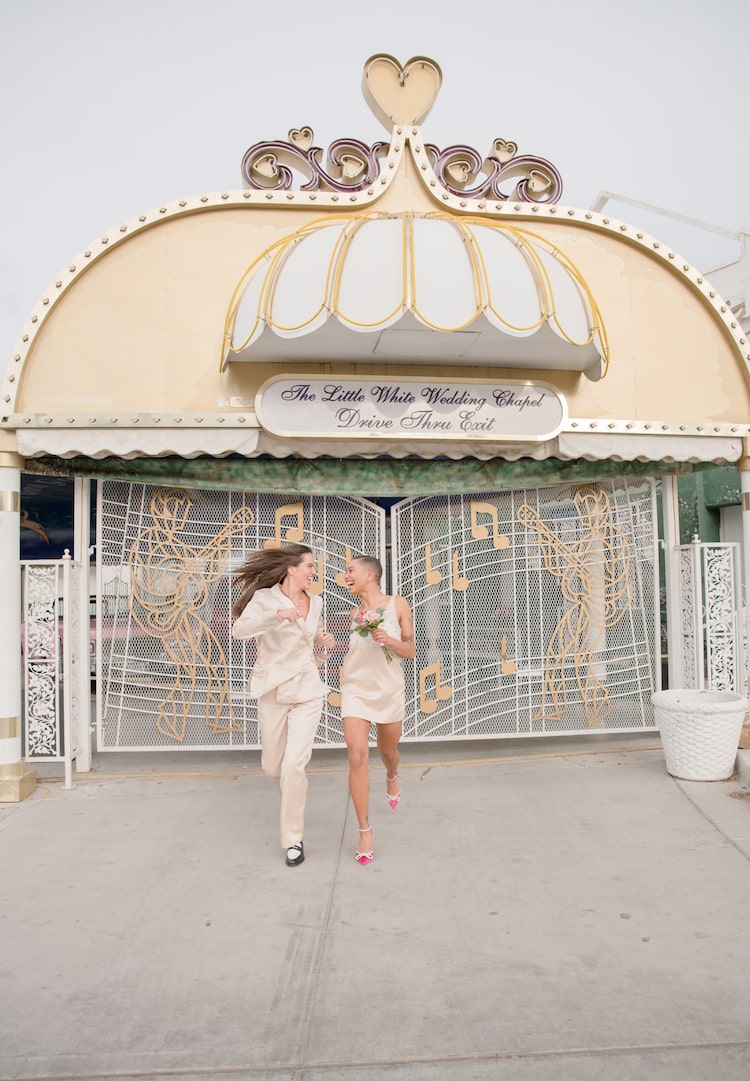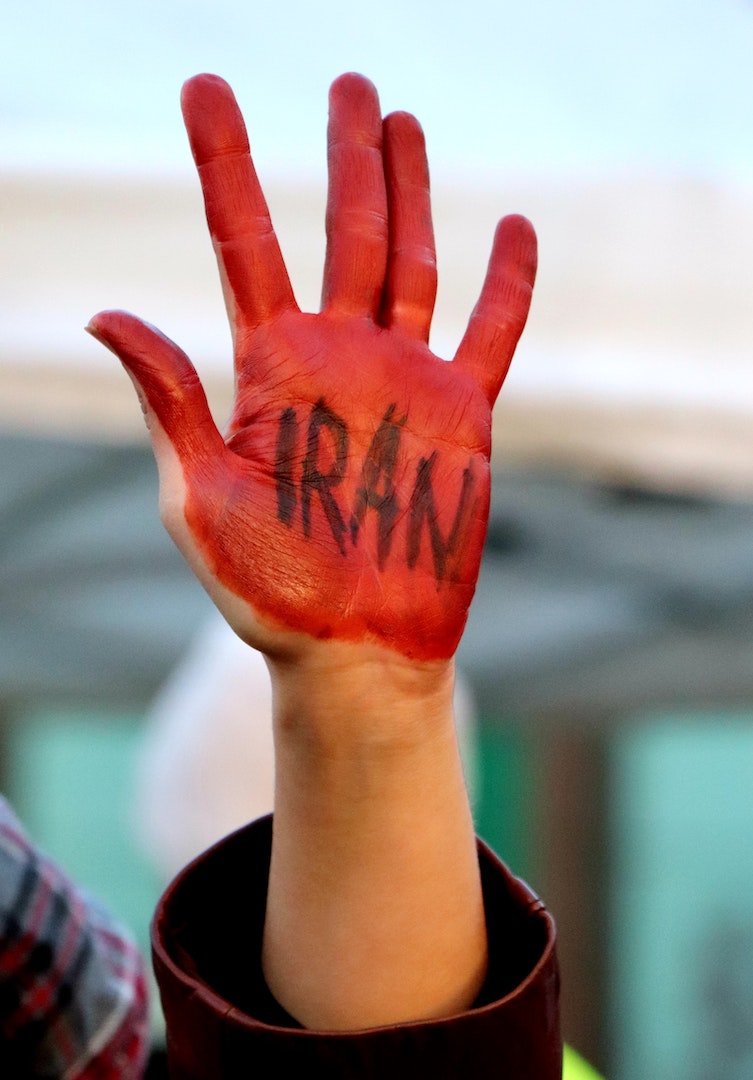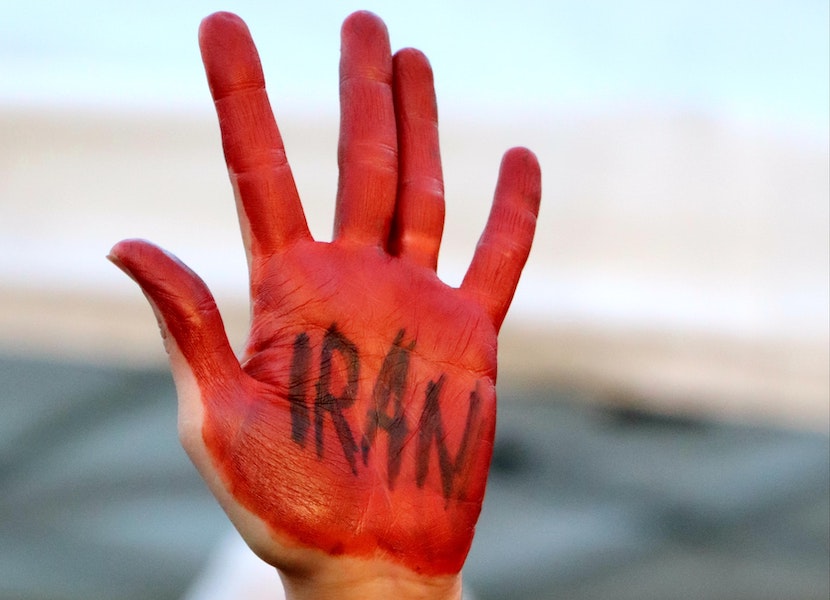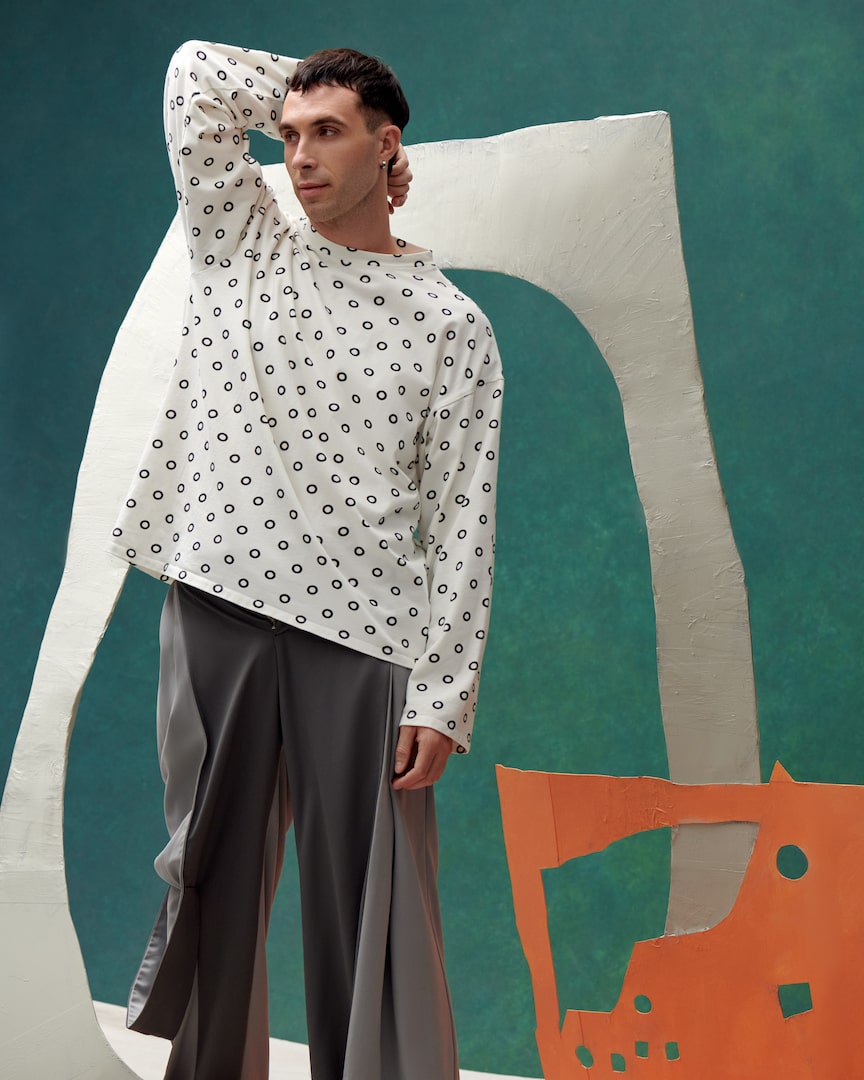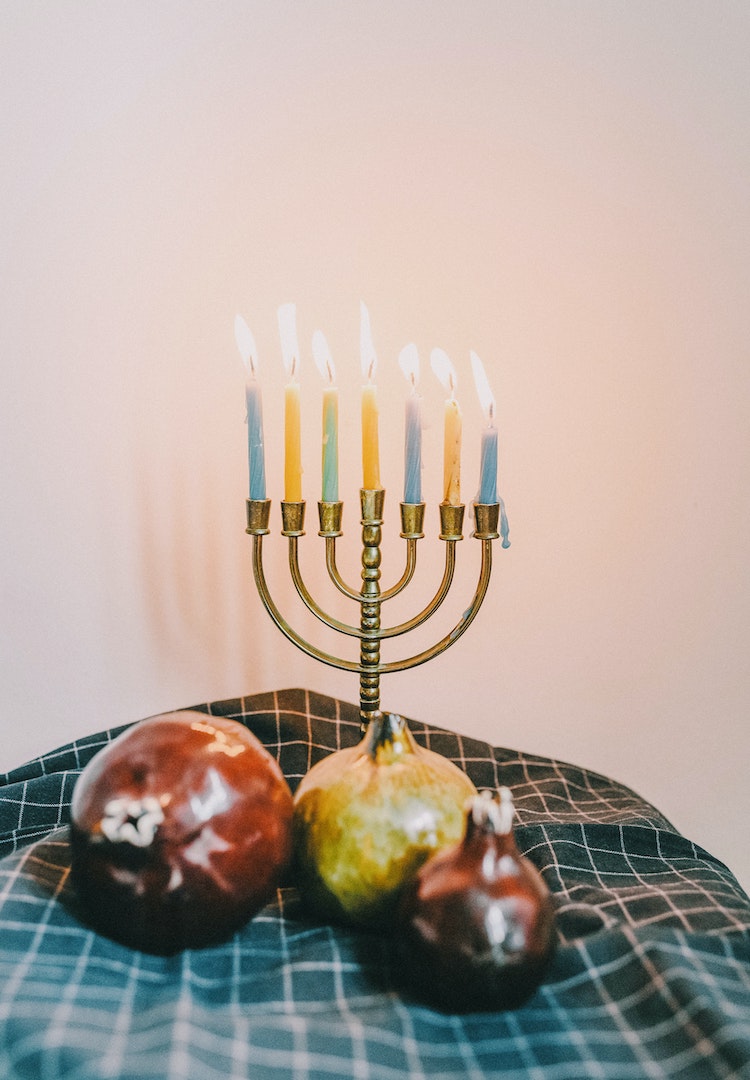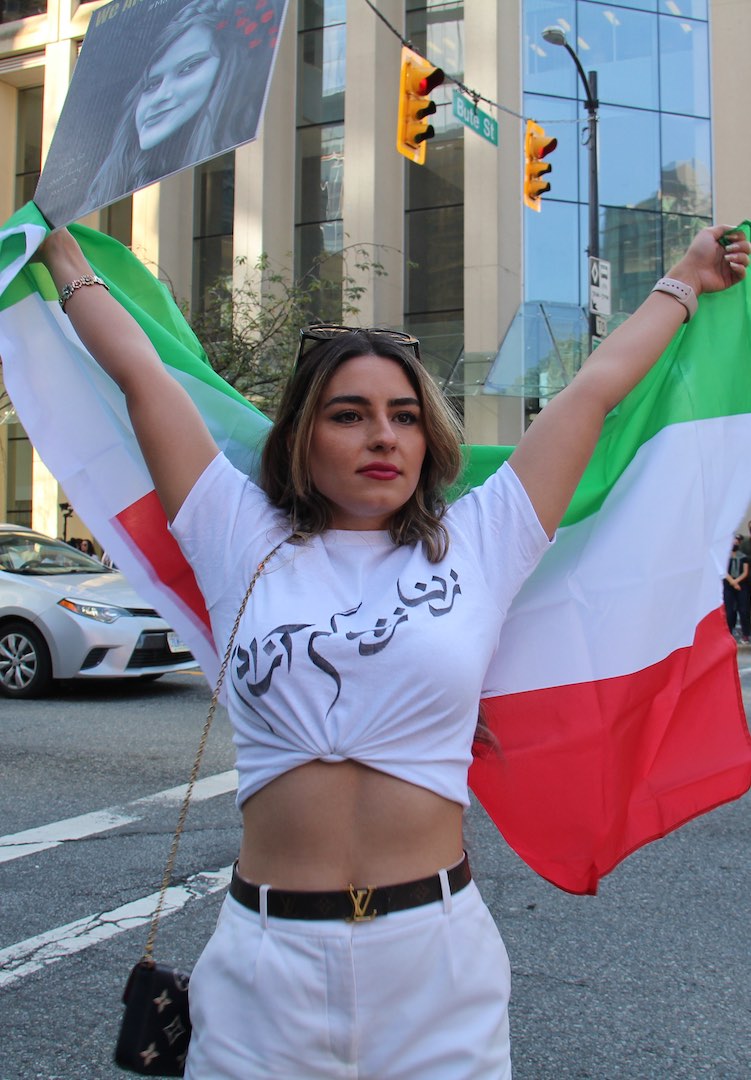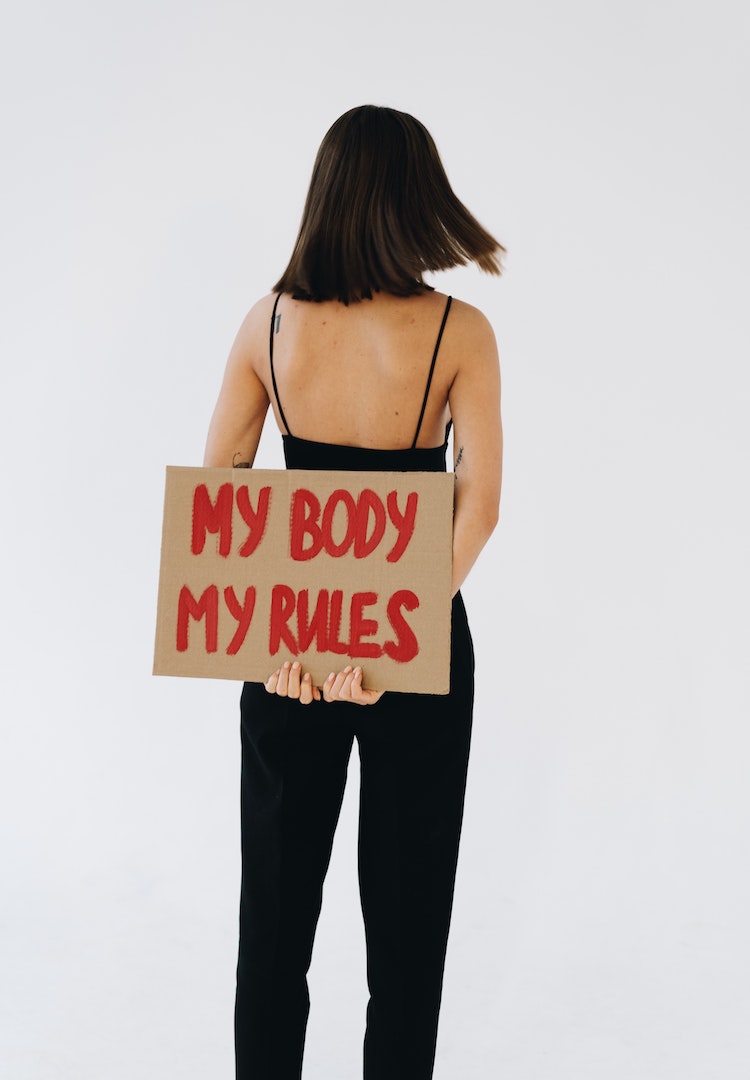What an Iranian-Australian wants you to know about the current crisis
WORDS BY Enya Roberts
“There’s a lot beneath the surface the outside world isn’t seeing.”
Content warning: This article details violence against women and children.
Lately, it kinda feels like the world is falling apart. With massive floods, soaring rental prices and conflicts arising regularly, it’s hard to know where to start when it comes to making a change. Since the 2022 death of Kurdish Iranian woman Mahsa Amini, the women’s rights protests in Iran have become a globally-covered topic. To help you navigate the current discussions, we have someone who’s eager to educate Australians.
Interested to hear how others navigate the world? Head to our Life section.
Pegah Ghaemi is an Iranian-Australian woman with an intimate experience of the current Iranian regime. She has been witnessing its devastating response to these protests from afar. Below, she tells us what you need to know, and how you can really help those suffering.
Tell us about yourself.
I’m Pegah Ghaemi. I live in Dubai and I’m a film director, entrepreneur and business leader. I’m the founder of a production company, shamelessly self-titled Pegah. I’m also the co-founder of a vertically integrated media company called The Works Network, and a few other fun business ventures that delve into catering and art. I’d say my most well-known film so far is I am Yazidi which I wrote, directed and then co-produced with BBC World, shot in Kurdistan, Iraq.
What’s your experience of Iran?
I grew up in Australia and moved to Iran (where I was born) around 2006. I wanted to make films there – explore and harness my storytelling without the abundance of technology we have in Australia. Family and friends tried to talk me out of it, but I wasn’t afraid. I wanted the adventure!
I began experiencing the exact opposite of what everyone was telling me… I was totally living my dream! Iran is full of culture and stories. It’s visually captivating and the people are multifaceted. There wasn’t a lack of technology. Instead, I discovered what I was really there for… the magic of poetry in storytelling and in filmmaking.
Iranian women were strong and timid, rich and poor, religious and secular, modern and traditional… like any other country, to be honest. What really stood out for me about them was what people had also said about me back home in Sydney, ‘You carry a lot of pride’. It was living with a lot of this ‘pride’ that was different to my life back home in Australia.
Why did the protests start?
In Iran, women were rarely in the public eye… but [while] living in Tehran, I felt the men around me were often as powerless as the women. Being female had certain perks too, especially in matters of privacy… or smaller benefits like being asked to the front of the line at the bank.
Many men considered themselves ‘feminists’. We’d sit and quietly discuss the ideals of our female protagonists… crafting how these females could simultaneously roar yet be silent. This was the only way our films could pass the censorship radar – the female roar had to appear passive.
But after the initial excitement of ‘living my dream’, I felt like part of a nation held hostage… extravagant underground parties helped us survive by hiding beneath a façade. We were little kids playing games under the table when the teacher wasn’t looking.
Chivalry in the banks or feminism among friends isn’t enough. This regime is as oppressive as it is sexist. Women face a constant lack of opportunity and [enforced] submission. Every part of their lives is linked to this government’s presence and power. I was taken by the morality police… in late 2008. In that horrid van – you don’t know where they’ll take you, what’ll happen to you… I escaped by acting completely foreign. I spoke English and acted dumb to rules I’d come to know pretty well by then.
My folded scarf revealed too much hair, and my shorter sleeves showed my arms. I wasn’t actually trying to challenge the regime – it was summer, I was hot. I was just being me. Inside the van, the angry female guard cut off the tip of my hair as a reminder, unfolded my scarf to cover what was left, rolled down my sleeves to cover my arms and reluctantly opened the van door… ‘Get out!’. I got out. The other women in the van didn’t.
Gender inequality is really just the tip of the iceberg. There’s a lot beneath the surface the outside world isn’t seeing. The people inside are barely aware of it. They’re tired, afraid and in a constant state of uncertainty. [All this] sparked the riots with the death of Mahsa Amini, who died in hospital shortly after her capture by the morality police… her mother and brother begging to get her out of that van is an image most people will not forget.
Her death shapeshifted the country quite a lot. It connected Iranians from all over the globe to each other and back to the Persian land (most Iranians abroad only call themselves ‘Persian’, because they relate to the ancient laws of tolerance, respect, human rights and diversity, not the Islamic Republic of Iran).
Mahsa Amini gave rise to some inner superpower among the people… fueled by rage. She and all the people (including children) who’ve given up their lives for the fight named Woman, Life, Freedom are today’s true martyrs.
What happened during the protests?
Men striking women in the street, arresting women by physical force, dragging them even when their clothes come off – insane. My brother and I were once arrested for walking with linked arms because they thought we were in a relationship outside wedlock. Has the Islamic Republic forgotten that its most sacred pillars are that unrelated gender opposites are forbidden to even touch?
They’re breaking their own laws to silence the people. They’re using military force against little kids and the elderly… punishing them all in their own country! If a woman showing up in what she chooses to wear becomes a national threat, isn’t that a vivid show of fear for Women, Life and Freedom? That’s the exact translation of this hymn ‘Zan, Zendegi, Azadi’. It’s the pulse of this fight for the people of Iran. I really do believe its values matter to everyone, not just the Iranian people.
Is there anything else you want Australians to know?
Having lived so long abroad and travelled to many countries for work, I’ve come to realise that Australia is one of the best countries to live in. We’re diverse and inclusive… there’s room for improvement, but we are very, very lucky in so many ways.
Thanks to my parents who legally migrated to Australia, I never experienced the life of an asylum seeker or refugee. But I really felt for the people who have left their countries when I realised I wasn’t safe living in Iran anymore. In all my travels to developing nations, I’ve never met people who want to leave their country, life, family and friends. They only leave because… they can’t survive.
Most men and women in Iran are in complete opposition to the government. But most don’t actually want to leave. They love their country. They only want to escape this regime. So I believe empathy is the greatest gift to the people there. Empathy, followed by action to help amplify the voices of the freedom fighters inside Iran… to help them live a better life, like the rest of us.
What can Australians do in support?
Australia is a leading nation on the support front. We’ve addressed the issues in Iran with peaceful protests. Online personalities have stepped up and made awesome content, and our politicians have openly condemned the actions of the Islamic Republic of Iran as well. But I know from friends in Australia there’s a definite plea… for more action from the Australian Government.
So I really think if there’s a chance to be a part of this movement in any way, to help amplify the voices of Iranian people, let’s keep that up! Many organisations are putting together petitions and protests, helping people in Iran the best they can. Instagram, Facebook and major broadcasters are great resources – using them will help improve media coverage of these Australian protests. If you see a local Persian/Iranian supermarket or restaurant, you can always walk in and ask them how you can support them.
The freedom fighters in Iran need to know we’re with them, hearing their voices and seeing them. Their persecutors in and outside of Iran also need to know they’re being seen – the world is watching.
For more information on how you can get involved, head here.

